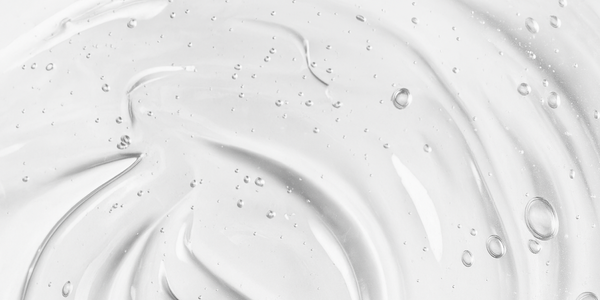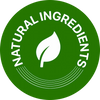You’ve probably heard about the wonders of retinol—it’s one of those ingredients that can tackle a variety of skin issues, from reducing fine lines and wrinkles to fighting acne and fading dark spots. But as much as it works magic for many, not everyone can use retinoids due to skin sensitivity. And if you’re pregnant or breastfeeding, doctors strongly advise avoiding it. For those with sensitive or rosacea-prone skin, retinol products can be too irritating, causing more harm than good.
The good news? There are plenty of gentler alternatives that can target similar skin concerns, without the irritation. These alternatives, including bakuchiol, resveratrol, peptides, and azelaic acid, have been dermatologist-approved and are great for sensitive skin. Let's explore some of the best retinol alternatives that could be a game-changer for your skincare routine!
Try These Retinol Alternatives
If your goal is smoother, brighter skin with a more even texture, AHAs are your friends. These chemical exfoliants, like glycolic acid and lactic acid, help break down the bonds holding dead skin cells together, revealing the fresh, glowing skin underneath. AHAs can help improve your skin's overall texture, lighten dark spots, and even reduce fine lines and wrinkles. They’re usually less irritating than retinol, so they’re a great choice if you’ve got sensitive skin. You can find AHAs in everything from cleansers and toners to serums.
Alpha Hydroxy Acids (AHAs)
If your goal is smoother, brighter skin with a more even texture, AHAs are your friends. These chemical exfoliants, like glycolic acid and lactic acid, help break down the bonds holding dead skin cells together, revealing the fresh, glowing skin underneath. AHAs can help improve your skin's overall texture, lighten dark spots, and even reduce fine lines and wrinkles. They’re usually less irritating than retinol, so they’re a great choice if you’ve got sensitive skin. You can find AHAs in everything from cleansers and toners to serums.
Pro Tip: You can try our Dr. M. Bernstein's Pigmentation Cream with Kojic Acid, which includes both glycolic and lactic acid. It also features kojic acid, which helps reduce the appearance of fine lines and wrinkles, particularly around the eyes. This combination can give your skin a radiant boost while tackling pigmentation and smoothing out texture!
Peptides
Peptides are like the building blocks of your skin, made up of short chains of amino acids that help increase collagen production and improve skin elasticity. They work behind the scenes to strengthen your skin and reduce the appearance of fine lines and wrinkles while keeping it hydrated and firm. Peptides are super gentle and safe for all skin types, making them an excellent alternative to retinol, especially if you’re worried about irritation.
Vitamin C
A powerhouse antioxidant, vitamin C does wonders for brightening the skin and protecting it from environmental damage like pollution and UV rays. It helps fade dark spots and even stimulates collagen production, which is key for keeping your skin looking youthful and radiant. Vitamin C is generally well-tolerated, even for people with sensitive skin, and it’s widely available in serums and creams. If you’re looking to add some glow to your skin and fend off wrinkles, vitamin C is a fantastic option.
Pro Tip: Try Dr. M. Bernstein’s Anti-Aging Vitamin C Clay Mask for a brightening boost!
Bakuchiol
Derived from the seeds of the babchi plant, bakuchiol has become a superstar in the world of clean skincare. Many people love it as a natural alternative to retinol because it provides similar benefits—stimulating collagen production and promoting cell turnover—without the irritation. It’s gentle enough for sensitive skin, which means you can enjoy the anti-aging benefits without risking redness, dryness, or flakiness. Bakuchiol is found in a variety of serums and moisturizers, and it’s perfect for daily use if you’re looking to smooth your skin while keeping it calm and happy.
Niacinamide (Vitamin B3)
Niacinamide is the ultimate multitasker. It helps regulate oil production, minimize pores, and even strengthens the skin barrier, which is essential for keeping your skin healthy and hydrated. Niacinamide is your go-to ingredient if you struggle with uneven skin tone, redness, or inflammation. It’s non-irritating and well-tolerated by almost every skin type, so you don’t have to worry about causing flare-ups or irritation. Plus, its soothing properties make it ideal for anyone with sensitive or acne-prone skin. You’ll find niacinamide in serums, moisturizers, and even some toners.
Pro Tip: Our beloved Dr. M. Bernstein's Pigmentation Cream with Kojic Acid also includes niacinamide, making it a powerhouse for tackling uneven skin tone, reducing redness, and providing a soothing, hydrating effect. This cream not only addresses pigmentation but also helps keep your skin barrier strong and healthy!
Glutathione
If you haven’t heard of glutathione yet, it’s time to get acquainted. This potent antioxidant helps neutralize free radicals and brighten your complexion. It’s especially effective at reducing hyperpigmentation and promoting an even skin tone, making it a great choice if you’re dealing with dark spots or an uneven complexion.
Glutathione is gentle on the skin, so you can use it whether you have sensitive or more resilient skin. It’s available in various serums and creams, perfect for those looking to add extra radiance to their routine.
Shop the Article
SAVE 30%
SAVE 34%






















